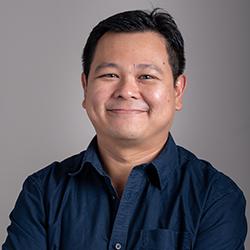
Daniel is a Research Economist at the Asian Development Bank Institute (ADBI). He conducts development economics enquiries in the areas of education, labour, poverty, and social policy. His research has informed policy discussions at the Indonesian Vice President’s Office, Indonesian Ministry of Education and Culture, Indonesian Ministry of Finance, and various international organisations.
Prior to joining ADBI, Daniel was the Deputy Team Leader of the Research on Improving Systems of Education program in Indonesia and a Senior Research Fellow at the SMERU Research Institute in Jakarta. He was previously a Research Fellow at ANU, a Research Manager at the Palladium Group, an international advisory company, and led the impact evaluation unit at the Centre for International Forestry Research.
Daniel graduated summa cum laude, or with highest distinction, in economics from Brandon University in Canada. He has a Master of Arts in Economics from the University of Toronto in Canada and a Doctorate in Economics from CBE in 2010.
Here is some of Daniel’s career advice for CBE HDR students:
1. Why did you choose to work in academia rather than in industry?
Looking back, I do not think I made the deliberate choice to go into academia. It was something that I naturally gravitated towards. I was lucky in the sense that I found the perfect institution to be my home when I graduated with my Masters. At SMERU, I met some serious economists who are driven in their mission to improve the Indonesian economy. This led me to pursuing my PhD at ANU. So naturally, after I graduated, I continued to look for work in academia.
2. What are your tips for a successful interview with an international institute such as ADBI?
International research institutions like ADBI are somewhat different from a typical university. Firstly, ADBI focuses on creating rigorous knowledge that is policy relevant. Policymakers should find our research outputs useful as they consider different reform options. Therefore, having a client-focused perspective is important. Secondly, ADBI collaborates with other organisations and this is always a way to amplify your messages to relevant stakeholders. Hence, a good proportion of our time is spent creating and managing these networks.
So, you need to show that you have conducted rigorous and policy relevant research in the area the institution is concerned with. You also need to show you are great at creating networks and maintaining them, and have engaged with policymakers who find your advice or input useful.
3. What is a day in the life of Daniel Suryadarma like?
Just like within universities, work at ADBI incorporates a lot of academic freedom. During a typical day, I manage ongoing research projects, which includes coordinating with collaborators to ensure projects continue according to schedule and are on budget. I also discuss new project ideas and new research papers. In addition to this, I continue my own research papers, read new studies and attend conferences. In short, my day is quite similar to other academics.
4. Can you share three career lessons with current CBE HDR candidates?
Do what you like: It may sound cliché, but at least this way, you will feel joyful and discover new kinds of enjoyment throughout your career. Keeping your internal ‘fire’ burning is very important in academia. Pushing yourself to do something that you are not really interested in is not sustainable. Even if you find some success, you will not really feel fulfilled.
Always choose your loved ones: Sometimes you must choose between having a very successful career or being present for your loved ones. From what I have seen in my colleagues and from personal experience, very few can have both. If you find yourself faced with this choice, the optimal choice is always your loved ones.
Stay positive: You should not only be positive, but also maintain good relationships as much as possible. Academia is a relatively small community. Many interactions are not one-off. People that you interview for a position may one day be a reviewer for your grant application. Your colleagues may choose a different career track and one day become the Dean at a university or a government minister. People talk not just about your research output but also about your behaviour towards others and your commitment to projects, as well as how you treat your students or research assistants. It is very easy to create a bad reputation, and very hard to get rid of one.
